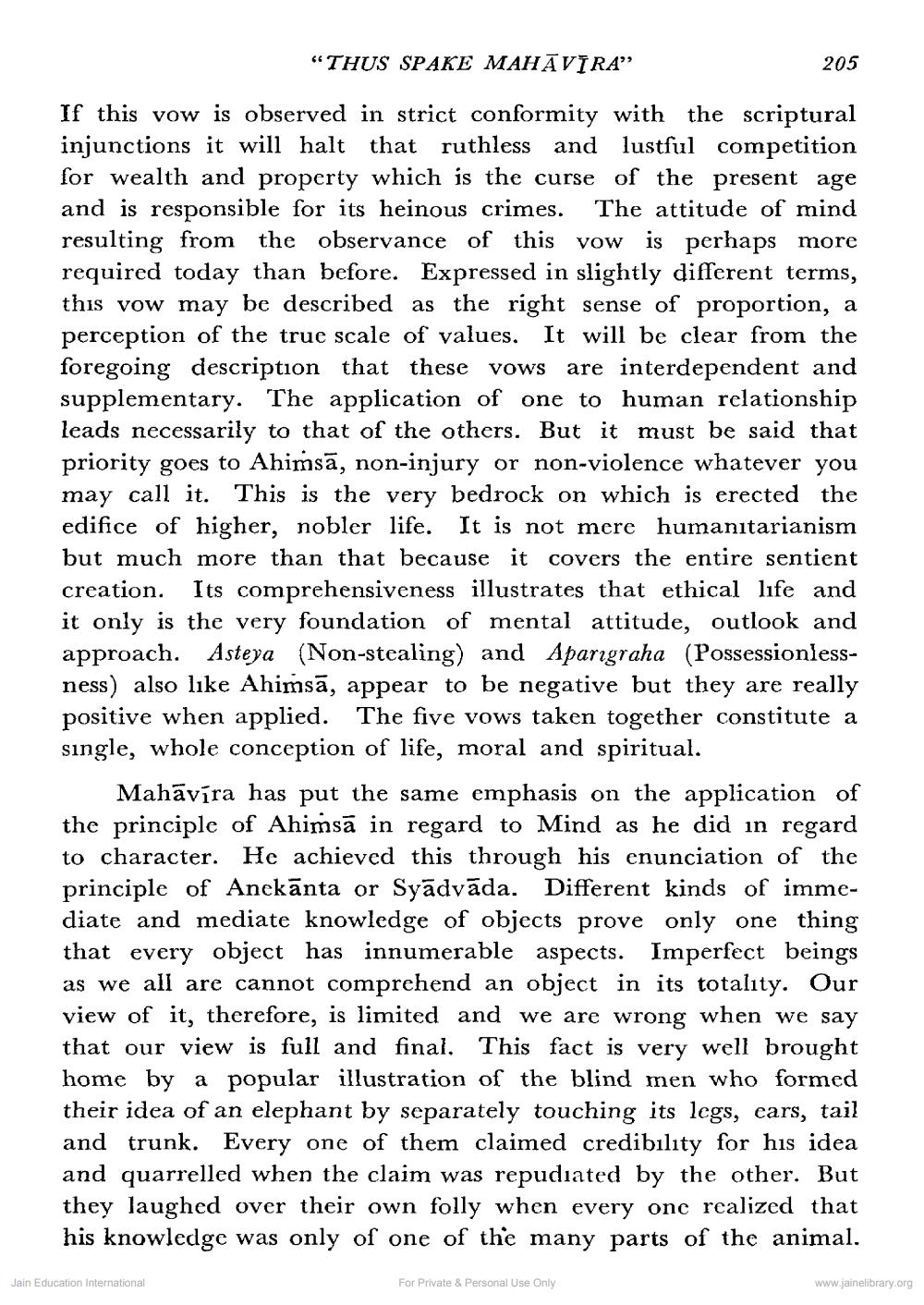________________
"THUS SPAKE MAHĀVĪRA”
If this vow is observed in strict conformity with the scriptural injunctions it will halt that ruthless and lustful competition for wealth and property which is the curse of the present age and is responsible for its heinous crimes. The attitude of mind resulting from the observance of this vow is perhaps more required today than before. Expressed in slightly different terms, this vow may be described as the right sense of proportion, a perception of the true scale of values. It will be clear from the foregoing description that these vows are interdependent and supplementary. The application of one to human relationship leads necessarily to that of the others. But it must be said that priority goes to Ahimsā, non-injury or non-violence whatever you may call it. This is the very bedrock on which is erected the edifice of higher, nobler life. It is not mere humanitarianism but much more than that because it covers the entire sentient creation. Its comprehensiveness illustrates that ethical life and it only is the very foundation of mental attitude, outlook and approach. Asteya (Non-stealing) and Aparıgraha (Possessionlessness) also like Ahimsā, appear to be negative but they are really positive when applied. The five vows taken together constitute a single, whole conception of life, moral and spiritual.
205
Mahāvíra has put the same emphasis on the application of the principle of Ahimsa in regard to Mind as he did in regard to character. He achieved this through his enunciation of the principle of Anekānta or Syādvāda. Different kinds of immediate and mediate knowledge of objects prove only one thing that every object has innumerable aspects. Imperfect beings as we all are cannot comprehend an object in its totality. Our view of it, therefore, is limited and we are wrong when we say that our view is full and final. This fact is very well brought home by a popular illustration of the blind men who formed their idea of an elephant by separately touching its legs, ears, tail and trunk. Every one of them claimed credibility for his idea and quarrelled when the claim was repudiated by the other. But they laughed over their own folly when every one realized that his knowledge was only of one of the many parts of the animal.
For Private Personal Use Only
Jain Education International
www.jainelibrary.org




